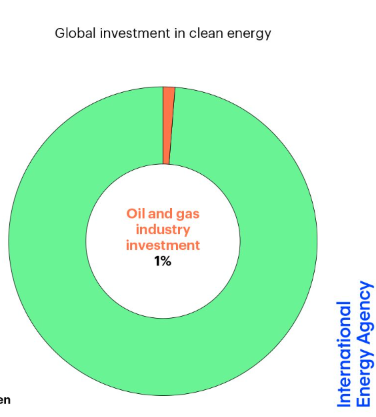
I would love to see the BBC tackle the climate and biodiversity crisis properly. So far, in all my decades of watching TV I’ve never once seen the kind of programme that I think the county, and the world, is crying out to see.
A couple of weeks ago Panorama tried to address the issues with a programme called ‘Why Are We Still Searching for Fossil Fuels?’ In it Richard Bilton looks at the expansion plans of fossil fuel companies and shows how far they exceed any safe carbon budget. We are on course for catastrophic climate change. 20 minutes and 55 seconds into the programme Richard Bilton states ‘The oil and gas companies are so enormous, they operate at such vast volumes, it is really hard to get a solution to climate change without their involvement.’ This fundamentally misunderstands the processes of change, and makes telling the more positive stories in relation to the climate and biodiversity crisis impossible to tell. Nearly all the exciting innovation is coming from new start-ups and not from the old energy incumbents. (The above pie chart shows how little of the cleantech investments are coming from fossil companies: just 1%. They are irrelevent)
In 2017 I posted a blog under the title ‘Can Companies Change?’ In it I contrasted the Danish company DONG, formally the Danish Oil and Gas Company, who gradually developed into the world’s largest offshore wind developer, sold off all their fossil fuel interests and changed their name to Orsted. They are one of the very few fossil fuel companies to make this kind of transition. Peabody, formally the world’s largest coal producer, failed to change, and filed for bankruptcy in 2016. Most of the big oil and gas companies have dabbled in renewables, but for most of them it is a tiny share of their total capital investments. Probably they have now left it too late to change. It seems ever more likely that many of the big oil and gas companies will fail to change and go bankrupt as demand for their products withers in the face of cleantech expansion.
The fast growing renewables and cleantech sector is utterly dominated by new start-ups. That is where technical innovation is happening. Social innovation is happening in many ways, often led by cities. Ecological restoration is being led by many farmers and pioneering organizations.
A number of programmes could focus on solar power. The improved performance and falling price of solar panels is rapidly expanding their deployment in most, but not all, countries. It would be good to hear more about community ownership projects like The Big Solar Co-op, the way China is massively investing in solar power, and how solar is transforming villages across Africa. Offshore wind is really taking off in many places, and it would be good to hear more about this. Surplus wind and solar power will need to be stored for times of little sun or wind, and energy storage, like solar panels, are undergoing rapid change. Recent advances in, for example, sodium-ion batteries for grid electricity storage or e-methanol for fuelling shipping are signs of profound change. In the EU primary energy demand peaked in 2006 and has been slowly declining since.* As renewables exponentially expand, the demand for fossil fuels will inevitably dwindle. Other regions, such as Latin America, are following this path, and eventually all countries will.
Many cities are decreasing car dependency through investing in walking, cycling, public transport, and also as more people work from home, cities will see their need for cars and oil decrease rapidly, and air quality and human health improve. On numerous rewilding and ecological farming projects biodiversity is beginning to recover, and to flourish. This can be done while also producing energy, more and better food and employment. I would love to see programmes about these things made and presented by the people pioneering them, not by BBC journalists, none of whom seem to have much understanding about any of these changes.
Over the thirteen years that I’ve been writing these blogs, and over the coming years, I’ll try and continue to write about some of these profound and positive changes that give hope in the face of the climate and biodiversity crisis. Many of the technologies and land use systems that so inspire me would make excellent television: they are very visual things, but I’ve never seen any of them given the coverage they deserve on television.
Wolfgang Blau, co-founder of the Oxford Climate Journalism Network, tweeted on 22nd November that ‘We are worrying too much about the climate science deniers and not enough about the much, much larger part of the population that is very worried about global warming but doesn’t hear enough about the many emerging solutions’.
I couldn’t agree more!
- (* Thomas Pellerin-Carlin, with data from the Energy Institute Statistical Review of World Energy 2023)
